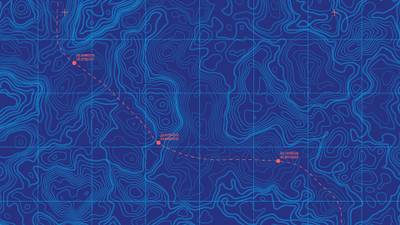Study Human Factors Engineering (HFE) online.
Learn from experts in psychophysics, industrial psychology, and HFE in this online short course that fits around full-time work.
- Understand how people interact with engineering systems and processes.
- Discover why good designs fail.
- Explore the ways equipment design, individual behaviours, and organisational behaviours all contribute to the safety of systems, buildings, workplaces and products.
You’ll gain vital professional knowledge, skills and a career boost as an engineer in any sector of industry. And you’ll have all the advantages of part-time online learning, wherever you’re based.

Build credits towards a Masters degree
This online course is part of:
- MSc Advanced Chemical Engineering
- MSc Process Safety Engineering
- MSc Safety and Reliability Engineering
You can use the credits you earn on this short course towards any of these MSc qualifications.
What you’ll study
The issues in Human Factors Engineering (HFE) can be grouped into three main areas:
- Man-equipment interfaces and interactions
- Organisational behaviours
- Personal behaviour/human error
You’ll examine how failures in these three areas are involved in all major incidents.
First, you’ll look at the human factors associated with designing processes and products. You’ll review a number of major accidents and identify how equipment design, individual behaviours, and organisational behaviours contributed.
You’ll learn tools and techniques that you can use to analyse individuals, workplaces and organisations, minimising injuries and loss, and achieving performance improvements.
You’ll then consider the role of equipment and system design, including man-machine interfaces. You’ll discover the effect design has on individual behaviour.
Moving on to human error, you’ll look at error types, the impact of environmental factors, Critical Task Analysis and Human Reliability Assessment.
Finally, you’ll examine organisational behaviours, exploring the strengths and weaknesses of leading and lagging indicators in promoting a culture of workplace safety.
At each stage, you’ll complete practical assessments led by industry practitioners with specialist HFE expertise.
By the end of this course, you’ll be able to...
-
Explain the role of people, equipment design and organisational factors in major accident events.
-
Identify types and classifications of human error.
-
Reflect on the effect of equipment design and organisational influence on the behaviour and actions of people.
-
Complete critical task analysis and human reliability assessments.
-
Create systems that minimise the likelihood of major incidents.
-
Determine the performance of human-machine interface designs.
How you’ll study
Online learning
This distance-learning Human Factors Engineering course is delivered flexibly, 100% online.
You can learn with us anywhere in the world, no student visa required, and manage your study hours to suit you.
Your teaching
This course is taught at Masters level.
Teaching is delivered through MyAberdeen, our online Virtual Learning Environment (VLE). It holds all the materials, tools and support you’ll need in your studies. Take a look around MyAberdeen.
You can access your learning materials on computer, smartphone and laptop, 24 hours a day. You’ll find a range of resources available, including:
- video lectures
- online tutorials
- reading materials
- discussion boards with your tutors and peers
- the online resources of our award-winning Sir Duncan Rice Library.
Your tutors
This Masters-level short course is delivered by our School of Engineering.
You’ll learn from experienced academics and researchers in engineering and psychophysics, and experts in HFE and industrial psychology.
Industry input
Your course content is also developed and reviewed by an Industry Advisory Board. This group of experienced professionals ensures your learning is always informed by the latest industry trends, technology, and career opportunities.
You’ll be assessed online. Assessment will take place throughout the teaching term.
Types of assessment for this course may include:
- coursework
- online quizzes
- timed online open-book assessments.
Assessment deadlines
Your assessments will have submission deadlines, either during or at the end of the course. Your course coordinator will let you know when your assessment deadlines are, so you can plan your study time accordingly.
The course totals approximately 150 hours of study and assessment time. That’s around 10 – 15 hours per week.
This is an indicative guide to the time required for a typical student at this level to achieve the learning outcomes. This includes time for independent study, as well as teaching and assessments.
You can largely set your own study hours each week to cover the materials. MyAberdeen is available 24/7, so you can log in and study when it suits you.
Activities with deadlines
There will be some activities scheduled at fixed times, such as assessments with deadlines, or meetings with your tutor. But otherwise, you can access and work through the course at your convenience.
Our first-class support structure will ensure that you aren’t alone in your studies.
You’ll have contact with your coordinator via email, MyAberdeen, Microsoft Teams, or phone. You can use social media and discussion boards to chat with your fellow students too.
We provide a wide range of services to support you in your studies and beyond:
- Careers and Employability Service
- Disability support
- IT support
- Library support
- Student Support Service – help with finances, wellbeing and non-academic issues
- Student Learning Service – study support, with advice sessions available
- Aberdeen University Students’ Association (AUSA) – run by students for students
- Toolkit – clever apps and free training that can make your study life easier
Wherever you are in the world, you’ll feel part of our very special Aberdeen learning community.
Your course coordinator

Dr Waheed Afzal
Waheed is a Chartered Chemical Engineer, Chartered Scientist, and Fellow of the Institution of Chemical Engineers.
Waheed’s research focuses on developing sustainable solutions to environmental challenges, including carbon capture and utilisation.
He also heads our Masters degrees in Advanced Chemical Engineering and Process Safety Engineering.
View Waheed’s profileHear from Pedro about this course

Pedro, Human Factors Engineering student, Self-employed Director
Teaching team
“My experience at the University of Aberdeen has been excellent, especially due to the quality of the teaching staff. Professors like Dr. Waheed and Dr. Tan stand out for their impressive knowledge, thorough preparation, and the respectful, empathetic way they engage with students.
“They create an environment that encourages learning and interaction, making it easy to build a strong connection. Because of this, I committed to attending all live classes and they were always insightful and enriching. This high standard of teaching is one of the key reasons I confidently recommend the University to others.”
Online platform
“I’d also like to highlight the quality of the learning resources provided throughout. The University library presentations were exceptionally well structured and helpful, making it easy to perform academic research and citations.”
Guest speakers
“The external guest presentations were of very high quality, bringing valuable real-world perspectives that complemented the course content. These elements added great depth to the learning experience and reflected the University’s commitment to academic excellence.”
Where this will take you
Towards a Masters
You’ll earn 15 credits at Masters level (SCQF Level 11) with this course. You can use these credits towards our online:

Masters in Process Safety Engineering
Become a qualified process safety engineer, ready to work in any chemical processing sector. Join an online degree you can fit around full-time work.
View MSc Process Safety Engineering
Masters in Safety and Reliability Engineering
Become a world-class safety engineer, wherever you’re based, with this accredited online MSc. Train online with internationally experienced safety engineers and learn direct from industry.
View MSc Safety and Reliability Engineering
Masters in Advanced Chemical Engineering
Develop your knowledge and qualifications in chemical engineering, design and practice, with an emphasis on safety and sustainability. Study flexibly online in this degree that fits around full-time work.
View MSc Advanced Chemical EngineeringBuild your learning
We offer a range of specialist online engineering and technology courses you can use to build your skills.
Many carry credits you can build up into postgraduate qualifications, including Masters degrees:
Careers
This course will help you progress in your career as:
- an engineer in any sector of industry, or
- a professional involved in the design of systems, processes, buildings, workplaces or products.
Continuing Professional Development (CPD)
Your employer or professional institute may recognise this course for CPD hours. Talk to your employer or institute to find out more.

Free career support
Access our free careers service while you study.
- 1:1 appointments
- CV checks
- Interview prep
- Job opportunities
Entry requirements
Entry requirements
We welcome students from all over the world.
This course has no formal entry requirements. You do not need to provide proof of your qualifications.
But you do need to check the entry guidance above to understand the level of teaching delivered, to decide if this course is right for you.
If you do not have qualifications from the UK, check the equivalent teaching level for your country.
Visa requirements
You do not need a student visa to study online with us.
English language requirements
Teaching is delivered in English.
You do not have to provide proof of your English language skills to join this course. But we want to make sure that you can use English well enough to study successfully.
Recommended level of English
For this course, we recommend the following level of English language proficiency.
These are our Postgraduate Standard requirements, and these are minimum scores.
IELTS Academic, IELTS UKVI Academic, or IELTS Online (not IELTS Indicator or IELTS General Training)
- 6.5 overall
- 5.5 for listening, reading and speaking
- 6.0 for writing
TOEFL iBT or TOEFL iBT Home Edition
- 90 overall
- 17 for listening
- 18 for reading
- 20 for speaking
- 21 for writing
- TOEFL DI code is 0818
Cambridge English: B2 First, C1 Advanced, or C2 Proficiency
- 176 overall
- 162 for listening, reading and speaking
- 169 for writing
LanguageCert Academic / LanguageCert Academic SELT
- 70 overall
- 60 for listening, reading and speaking
- 65 for writing
Oxford ELLT Digital – English Language Level Test Online
- 7.0 overall
- 5.0 for listening, reading and speaking
- 6.0 for writing
PTE Academic (online test not accepted)
- 62 overall
- 59 for listening, reading, speaking and writing
Skills for English: SELT
- B2 pass with merit
Duolingo – tests taken from 1 July 2024 onward
- 120 overall
- 95 for listening, reading and speaking
- 105 for writing
University of Aberdeen English Pre-sessional Programme (PSE)
- Pass
- Valid for one year. Refresher can be offered if out of date
Pre-sessional academic English preparation programmes undertaken at other UK universities
- Pass at an equivalent of 6.5 (C1)
- B2 in all four skills
- Certification must be within one year prior to the start of your course
For full information about language requirements, see our English Language Requirements page.
You will need access to:
A computer (PC, laptop or Mac) with an up-to-date operating system
Most teaching materials are smartphone- and tablet-friendly. But we recommend a proper laptop or desktop for completing assignments comfortably.
Reliable internet access
We recommend:
- a wired connection
- a minimum download speed of 2 Mbps so you can take part fully in live sessions.
Speakers or headphones
- We recommend a headset with built-in microphone and earphones if you’re likely to study in an environment with background noise.
- A webcam is optional, but you may like to use one for some interactive sessions.
Software
We’ll give you access to Office365 applications. This means you can use online versions of Microsoft Word, Excel, PowerPoint and OneDrive and install these programs on up to five personal devices.
If your course requires specialist software, we’ll provide you with access to this and a licence that lasts throughout your studies.
See our detailed IT requirements for more information.
When you study with us, you can expect a first-class support structure so that you’re never alone in your studies.
But learning online does mean you have to motivate yourself and manage your own time.
Your most important commitment will be time – the time to work through, reflect on and understand your teaching materials.
Before you start a course that involves a high degree of independent study, we recommend looking at the time you will be able to devote to your studies each week:
- Be realistic
- Create a weekly schedule as a guide
If you have any questions about studying online, get in touch with our friendly team. We’re here to help.
Fee payment
Your course fee needs to be paid in full before you start your course.
We accept payment via Visa Debit, Visa Credit and Mastercard.
Ways to save
You may be able to get help funding this course via:
- discounts – if any discounts are available for this course, they’ll appear in the section below
- employer sponsorship – we accept full and partial fee payments from sponsors.
Find out more about funding options.
Student card
All our students are entitled to a University of Aberdeen student card. This gives you access to a range of student discounts around the city and online.
This course has no formal entry requirements. You decide if it’s suitable for you.
The course is delivered at Masters level. At this level, you’d usually have at least:
- a 2:1 UK honours degree (or equivalent) in Engineering, Geosciences, Economics, Business, Law, or
- another science, technology or commercial degree, or
- three years’ relevant experience that supports this level of study.



























































